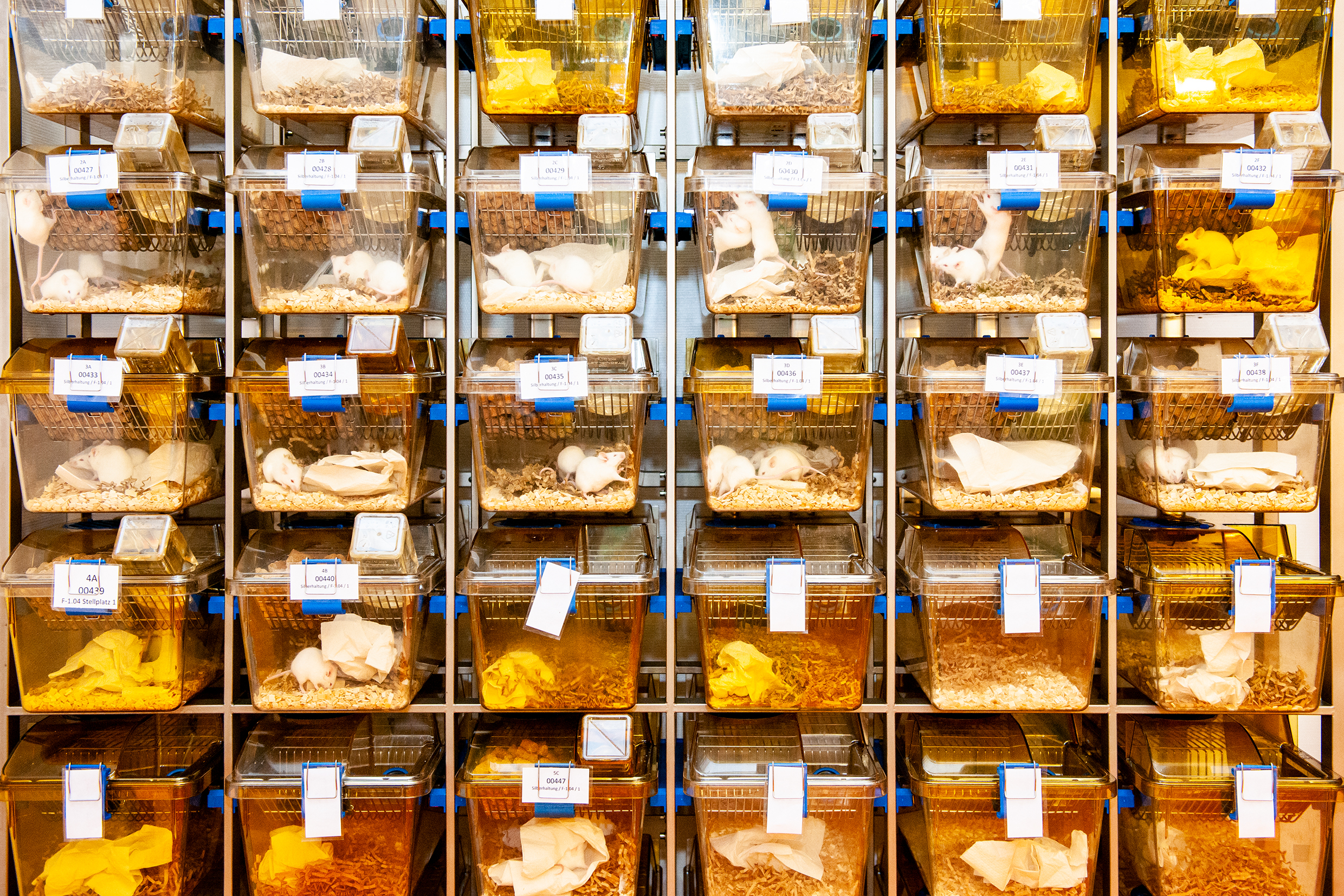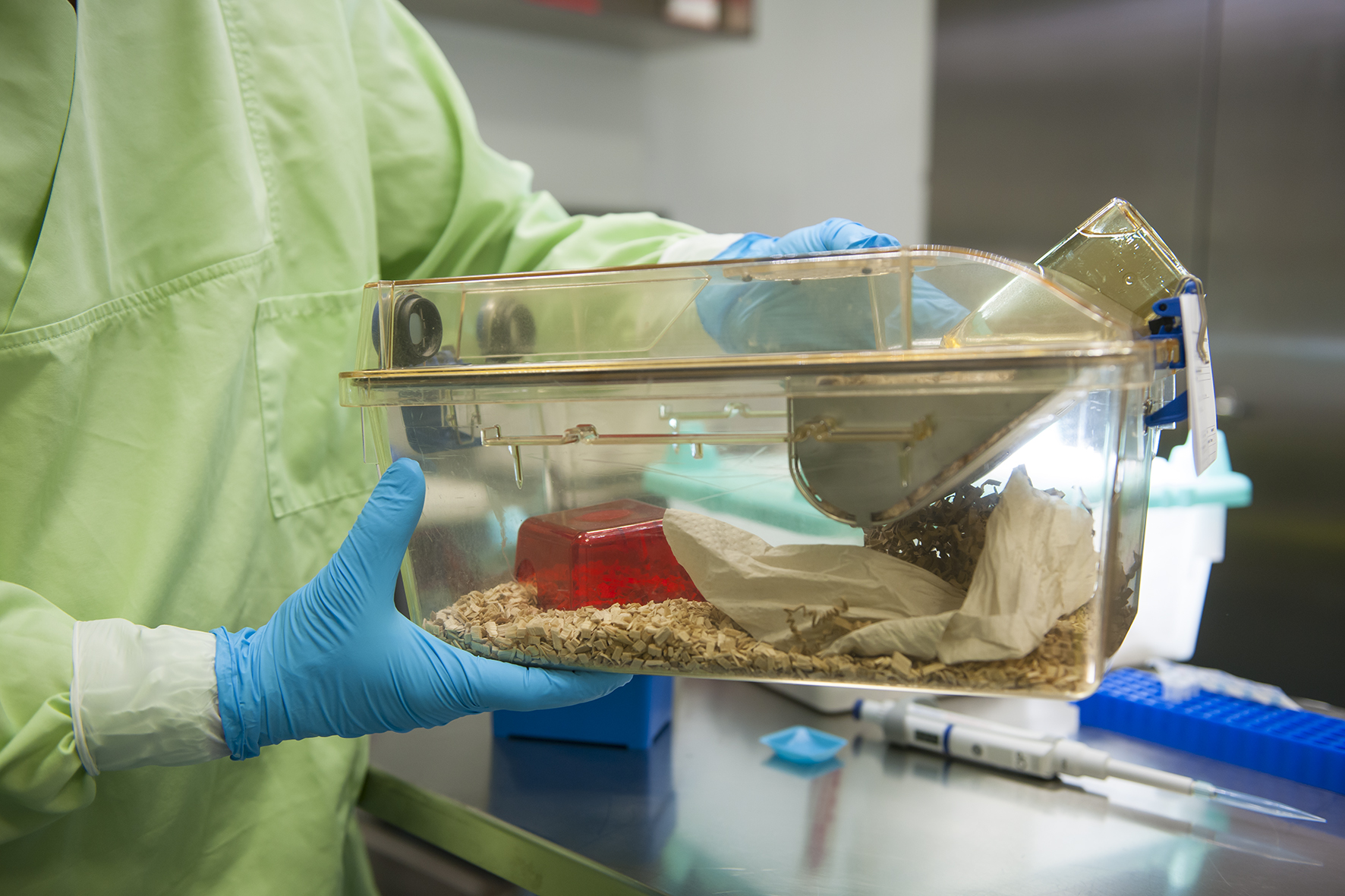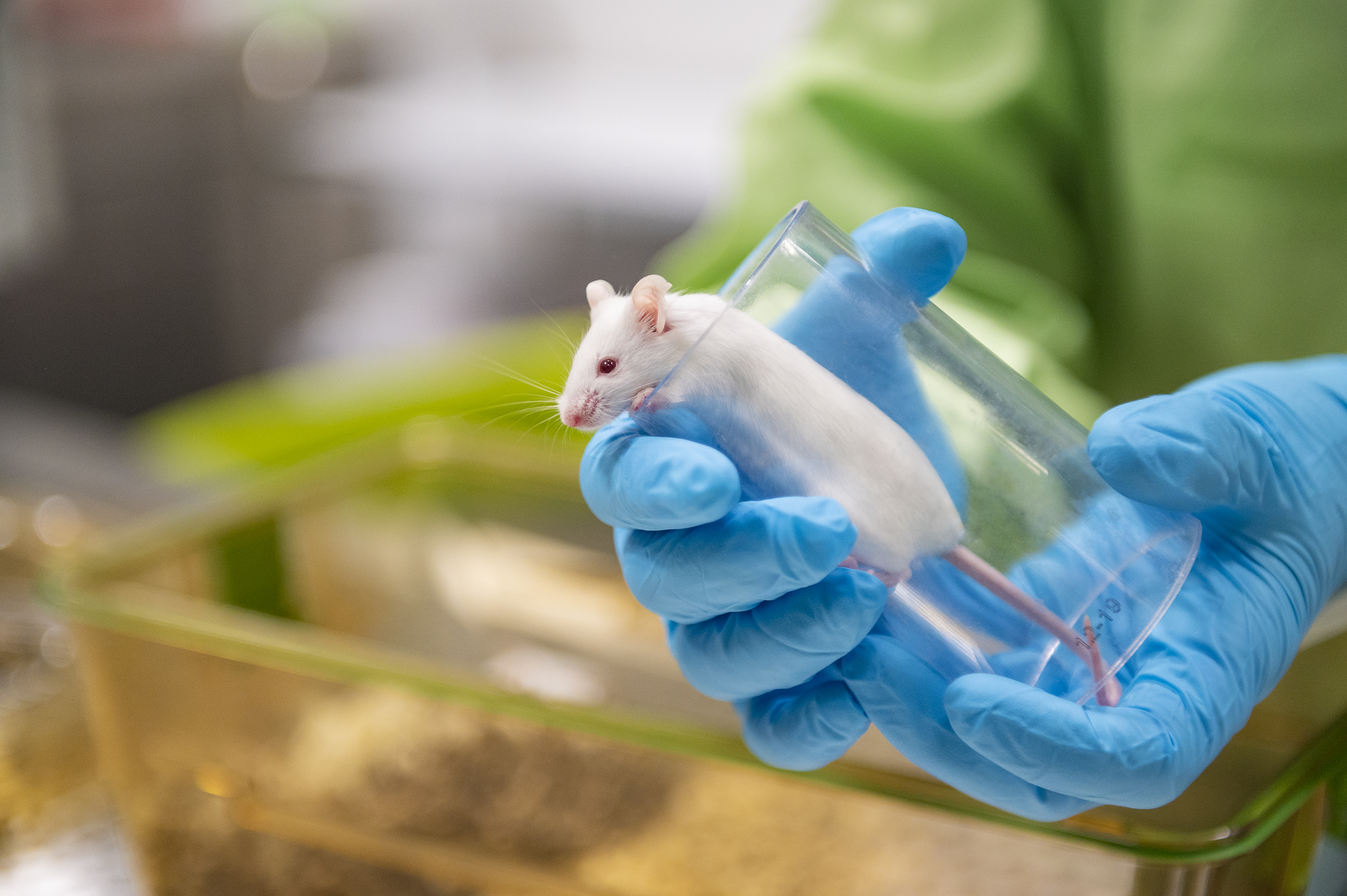Contact Press / Media
Dr. Franziska Lange
Animal facility manager, Leipzig site
Fraunhofer Institute for Cell Therapy and Immunology
Perlickstraße 1
04103 Leipzig, Germany
Phone +49 341 35536-1401
Primarily mice and rats are kept and used for research purposes at the institute. Other species are also used, e.g. sheep, pigs or rabbits, depending on the field of scientific research. No studies involving primates are conducted at Fraunhofer IZI.
The institute operates two animal facilities: one at its Leipzig site and another at its Halle (Saale) site.
Only small animals such as mice, rats and rabbits are kept at these sites. Larger experimental animals such as sheep and pigs are kept and cared for in cooperation with Leipzig University, in facilities belonging to the Faculty of Veterinary Medicine.
Moreover, animal husbandry at the Leipzig site is associated with an extensive imaging unit (magnetic resonance imaging, in-vivo bioluminescence and fluorescence, computer tomography) and an operating area for small and large animals.



Across Europe, “Directive 2010/63/EU on the protection of animals used for scientific purposes” sets down binding regulations on how experimental animals are to be kept. Not only does the directive define the areas in which animal testing is permitted, it also makes certain commitments regarding animal welfare.
Animals are kept in line with standardized specifications to make sure the scientific results obtained from animal research are globally comparable. The conditions under which animals are housed conform to the relevant statutory provisions, scientific needs and practicability. A great deal of importance is placed here on keeping stress to a minimum.
Mice are generally housed in individually ventilated cages (IVCs), which are supplied with filtered room air. Rats are accommodated either in extra-large IVC systems or in open housing. Rabbits are kept in open cage systems.
Three hygiene levels are provided for in the small-animal area, which cover quarantine, IVC and SPF housing. In the case of IVC housing, cages are closed with a special top and supplied with filtered room air.
Different biological safety levels (S1, S2 and S3) are separated spatially using airlocks / barriers, enabling researchers to work with animal and human pathogens.
Animals are kept in closely monitored rooms at Fraunhofer IZI. Both the temperature and humidity are consistently controlled to make sure the climate in the rooms remains the same at all times, while special lighting systems ensure a regular day and night rhythm.
To prevent animals from coming into contact with pathogens, the air circulated in the animal husbandry areas is always filtered. The animals’ food and water is sterilized, as are any bedding and nesting materials or enrichment items provided for animal stimulation. Anyone entering the animal facility first has to change and put on hygienic safety clothing.
Alongside technical equipment, which is continuously monitored and modernized as needed, the facility also requires trained staff. All members of staff who come into contact with the animals kept at Fraunhofer IZI, whether in terms of care or research, therefore receive continuous training.
Compliance with the applicable legal requirements is assured at Fraunhofer IZI through the internal animal welfare guidelines and monitored by the animal welfare officers. Animal husbandry is also overseen by the competent state authorities.
The animal facility manager is responsible for animal husbandry.
Animal care supervisors, who work around the clock, 365 days a year, ensure the animals are well cared for. Their primary tasks include cleaning the cages, feeding, breeding and continuously monitoring the health status of the animals, besides providing assistance with experiments.
The animal facilities are further supported by veterinarians, who can be called on to address any problems affecting animal health both in terms of breeding and husbandry and also in specific experimental projects.
All procedures and manipulations provided for within the scope of animal experiments approved by the authorities may only be carried out by suitably trained scientific and animal care personnel as per the statutory provisions (Directive 2010/63/EU, German Animal Welfare Act (TierSchG); German Animal Welfare Regulation Governing Experimental Animals (TierSchVersV)). Specific information on particular expertise and responsibilities relating to individual parts of an experiment is provided in detail in the request for approval of an animal experiment, reviewed by the animal welfare officers and is subject to the approval of the competent authorities.